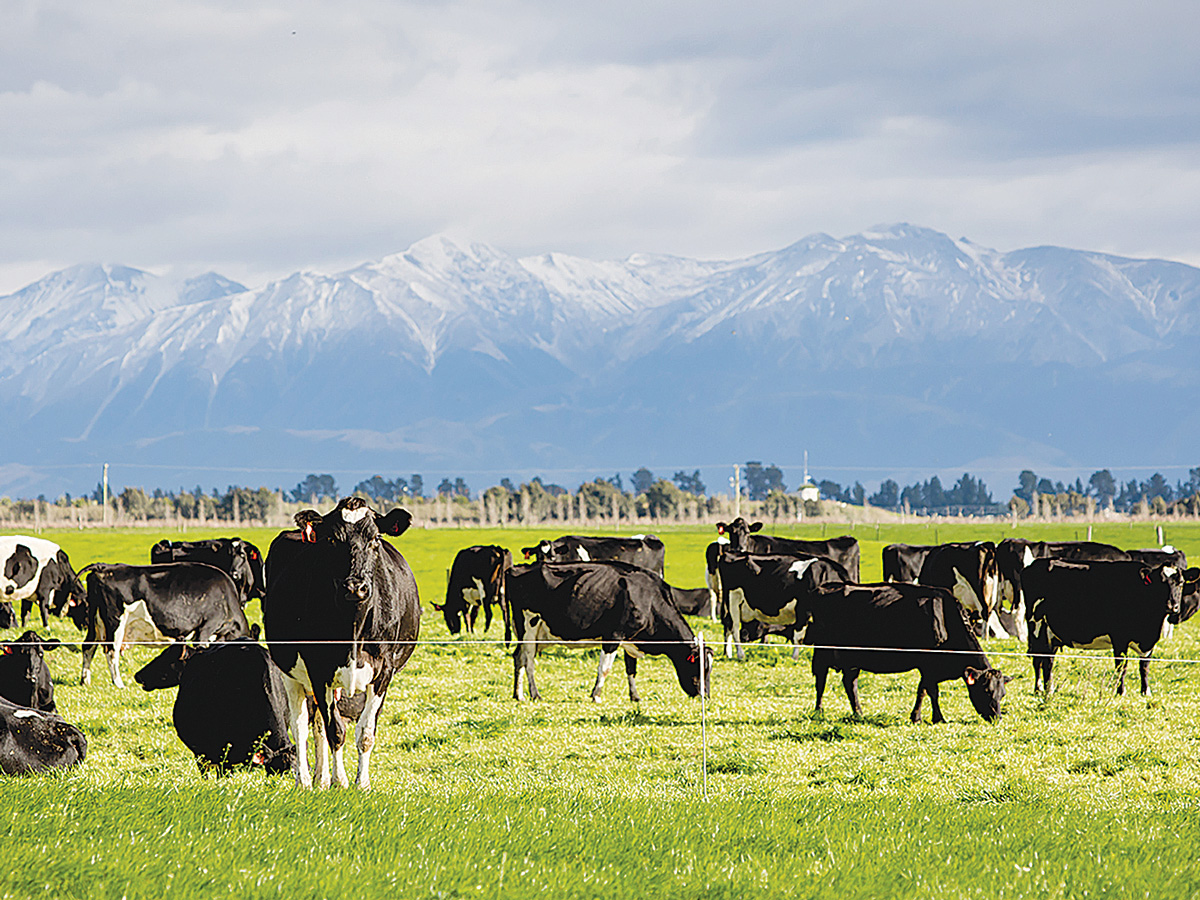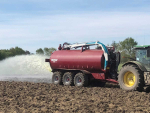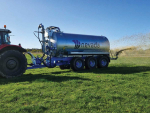Craigmore Sustainables is trialling technology to reduce methane in what it claims is a first for the New Zealand dairy industry.
Craigmore’s 400 hectare dairy farm Glen Eyre in Oxford, North Canterbury is the first commercial dairy farm in New Zealand to adopt EcoPond, an effluent treatment system that removes virtually all methane emitted from effluent ponds with an additive normally used in the treatment of drinking water.
The cutting-edge technology at the farm, which milks 1100 cows, is the result of a collaboration between Ravensdown and Lincoln University.
Craigmore’s general manager of farming Stuart Taylor says that Craigmore is striving to be a leader in the trial and adoption of new technology.
“Craigmore recognises that farming plays an important role in both contributing to and mitigating climate change and we have an ambition to materially exceed the targets set by the Climate Change Commission through land use change and changes to existing operations.
“EcoPond could play a key role in supporting farmers to reduce methane and help New Zealand meet its climate change targets.
“EcoPond is an important trial for us because we are keen to apply innovative ways to the reduction of emissions and minimise environmental impacts.”
Iron sulphate treatment is highly effective in reducing methane emissions due to increased microbial competition for organic matter substrate due to the addition of sulphate and ferric ions.
This restricts the growth of the methane producing microorganisms known as methanogens.
Initial tests undertaken in May tested the effluent from effluent pond after it had been treated with iron sulphate through EcoPond. This showed a 95% reduction in CH4 (methane) which is highly significant.
“This technology is another example of New Zealand’s primary sector leading the world in reducing emissions and playing our part in addressing climate change,” says Taylor.
“We have several sustainability programmes in place to ensure we strike a balance between respecting the environment and running a sustainable and profitable rural operation.”
Research is improving the understanding of how dairy farmers can reduce their greenhouse gas emissions and by continually improving, dairy farmers are producing 20% fewer emissions per kgMS than they did in 2000. In 2020, an AgResearch study confirmed New Zealand dairy farmers have the world’s lowest carbon footprint for on-farm milk production.
 |
|---|
|
Glen Eyre Farm, North Canterbury, is the first farm to adopt EcoPond.
|
Earlier this year, Eco- Pond became part of the newly established Ravensdown entity, Agnition.
Agnition’s mission is to get innovations on farm faster.
“EcoPond is an important part of the entity’s growing arsenal of technology and innovations that will help quickly deliver practical and sustainable on-farm solutions for New Zealand farmers and growers,” says Agnition chief executive officer, Jasper van Halder.
“It’s great to see Craigmore take a leadership role and demonstrate what can be achieved with EcoPond technology.
“Partnerships and innovation are required in the sector. It’s hard to beat practical on-farm use to really demonstrate the EcoPond advantage and partners like Craigmore show us the future of farming.”



















